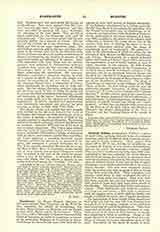

Guadeloupe (or BASSE TERRE), Diocese of (GUADALUPENSIS; IMAE TELLURIS), in the West Indies, comprises the islands of Guadeloupe, Les Saintes, Marie-Galante, La Desirade, and the French portions of St. Martin and St. Bartholomew. When, on November 4, 1493, Christopher Columbus discovered the island of Karukera, he called it Guadalupe, in honor of the miraculous Madonna of Guadalupe in Spain.
Guadeloupe has been French since 1653, with the exception of some brief periods of English occupation. It was formerly administered by a prefect Apostolic. In 1837 Jean-Marie de Lamennais, by agreement with the French Government, sent to Guadeloupe, as instructors, several brothers of the Institute of Ploërmel. On the publication of the royal ordinance of January 5, 1840, recalling to the priests of the colonies their obligation to instruct the young slaves, and to the masters their duty of allowing the latter to be instructed, Lamennais realized that the clergy of Guadeloupe must be reorganized. He addressed a note to the Government, in which he asked for the creation of three dioceses, at Martinique, Guadeloupe, and Guiana. Montalembert, in a speech delivered before the Chamber of Peers (April 7, 1845), demanded the appointment, if not of titular bishops, at least of vicars Apostolic, in the colonies. In 1848 Father Libermann, superior-general of the Congregation of the Holy Ghost, drew M. de Falloux’s attention to the question, and, by an agreement between France and the Holy See, the Bull of September 27, 1850, created for Guadeloupe the Bishopric of Basse-Terre as suffragan of the Archdiocese of Bordeaux. The clergy of Guadeloupe are educated in the seminary of the Holy Ghost, at Paris. Its first bishop (1851-53) was the celebrated preacher Lacarrière, of whom Chateaubriand said, “If I were a priest I should wish to preach like him.” In 1905 (the last year of the concordatory regime) the diocese numbered 182,112 inhabitants, 2 archidiaconates, 3 archipresbyterates, 19 deaneries, 37 parishes, 54 priests (besides the bishop and vicars-general). At that time the regulars were represented by the Fathers of the Holy Ghost, the Brothers of Ploërmel, the Sisters Hospitallers of St. Paul of Chartres, and the Teaching Sisters of St. Joseph of Cluny.
GEORGES GOYAU

